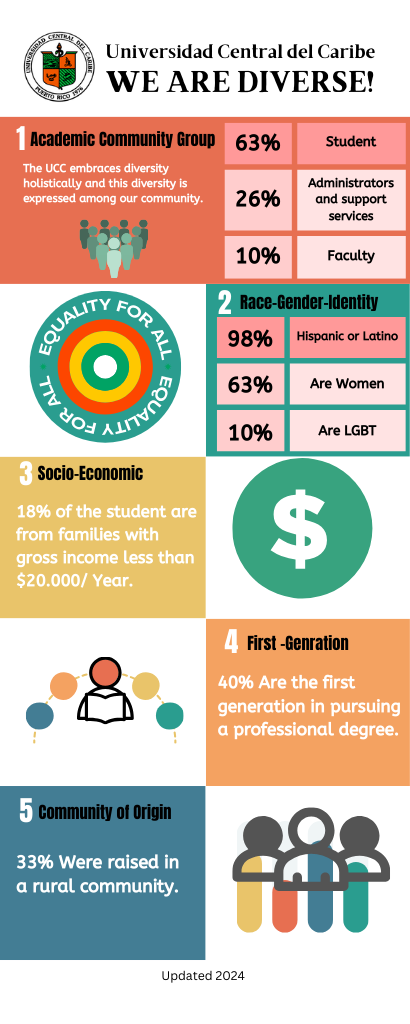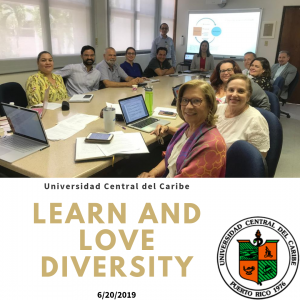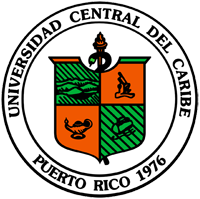 The UCC considers diversity an integral part of the entire institution. Our collective goal is to be conscious of diversity, reinforced with equity and excellence through inclusion, non-discrimination, and pluralism for all members.
The UCC considers diversity an integral part of the entire institution. Our collective goal is to be conscious of diversity, reinforced with equity and excellence through inclusion, non-discrimination, and pluralism for all members.
The UCC embraces diversity holistically, understanding that the definition is constantly evolving. The UCC defines diversity as the inclusion, welcome, and support of individuals from all groups, encompassing the various characteristics of persons in our community. This definition is a commitment to extend diversity beyond a set of ideas or nondiscrimination policies. We actively promote diversity, expand access, create a safe and supportive environment, and foster a community that embraces and celebrates all groups. Consequently, the UCC will not tolerate discrimination based on characteristics such as race, religion, color, sex, sexual orientation, gender identity/expression, age, marital status, political ideas, social condition, physical or mental impairment, genetic information, veterans/military experience, and victim or perceived as victim of domestic abuse, or national or social origin, and ethnicity.
The UCC expresses its commitment to diversity by:
- Attracting, recruiting, hiring, employing, and retaining faculty and staff from diverse characteristics,
- Attracting, recruiting, admitting, and retaining students from diverse characteristics,
- Developing, and training administration, faculty, staff and students in a culturally competent, inclusive, and respectful learning environment,
- Fostering the development of values that are embedded in the UCC’s mission in its employees and students,
- Promoting culturally sensitive healthcare services.
UCC Diversity Dimensions
In order to implement this policy, the UCC is engaging in important outreach efforts to enhance the group of diverse faculty and staff, and to attract and retain a diverse student body. The UCC is making efforts to develop specific approaches to measure its success in recruiting, retaining, and attracting diverse individuals to the UCC’s faculty, staff, and student body by identifying certain measurable characteristics within these groups
 For Students the specific criteria are:
For Students the specific criteria are:
- Students from Rural Areas– As defined in the HPSAs federal documentation or local municipality’s classification
- Students who are first generation college/graduate/professional attendees,
- Students with military service/veterans
- Students from racial and ethnic groups who are traditionally underrepresented in medicine with specific focus on Latino/Hispanic and Afro Caribbean backgrounds
For faculty and staff, the specific criteria are:
- Individuals from racial and ethnic groups who are traditionally underrepresented in academics with specific focus on Latino/Hispanic and Afro Caribbean ethnic backgrounds
- Individuals with military service/veterans
As employees, rules and regulations from the human resources office apply in terms of non-discrimination policies and open recruitment.
These criteria can be identified by examining post-hire/recruitment documents to determine whether the UCC’s diversity goals are being met. Additionally, the UCC will develop surveys so that individuals can self-identify other criteria that fall within the UCC’s diversity statement. The institution also aspires to develop programs that will increase the number of faculty and staff who demonstrate cultural competency and bilingual abilities.
